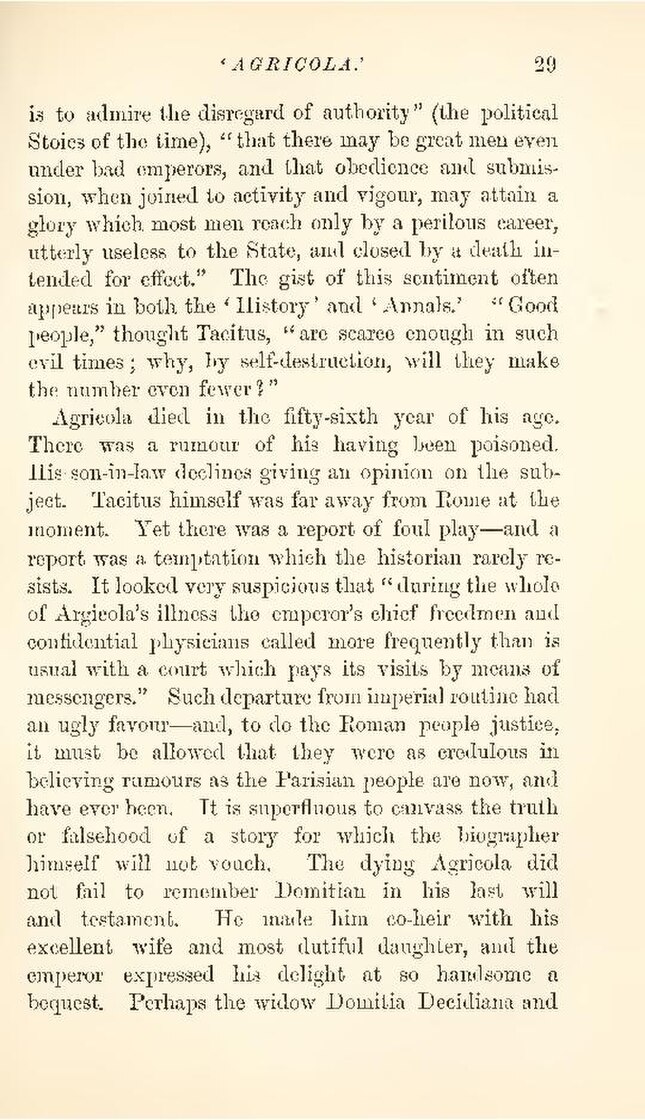is to admire the disregard of authority" (the political Stoics of the time), "that there may be great men even under bad emperors, and that obedience and submission, when joined to activity and vigour, may attain a glory which most men reach only by a perilous career, utterly useless to the State, and closed by a death intended for effect." The gist of this sentiment often appears in both the 'History' and 'Annals.' "Good people," thought Tacitus, "are scarce enough in such evil times; why, by self-destruction, will they make the number even fewer?"
Agricola died in the fifty-sixth year of his age. There was a rumour of his having been poisoned. His son-in-law declines giving an opinion on the subject. Tacitus himself was far away from Rome at the moment. Yet there was a report of foul play—and a report was a temptation which the historian rarely resists. It looked very suspicious that "during the whole of Argicola's illness the emperor's chief freedmen and confidential physicians called more frequently than is usual with a court which pays its visits by means of messengers." Such departure from imperial routine had an ugly favour—and, to do the Roman people justice, it must be allowed that they were as credulous in believing rumours as the Parisian people are now, and have ever been. It is superfluous to canvass the truth or falsehood of a story for which the biographer himself will not vouch. The dying Agricola did not fail to remember Domitian in his last will and testament. He made him co-heir with his excellent wife and most dutiful daughter, and the emperor expressed his delight at so handsome a bequest. Perhaps the widow Domitia Decidiana and
